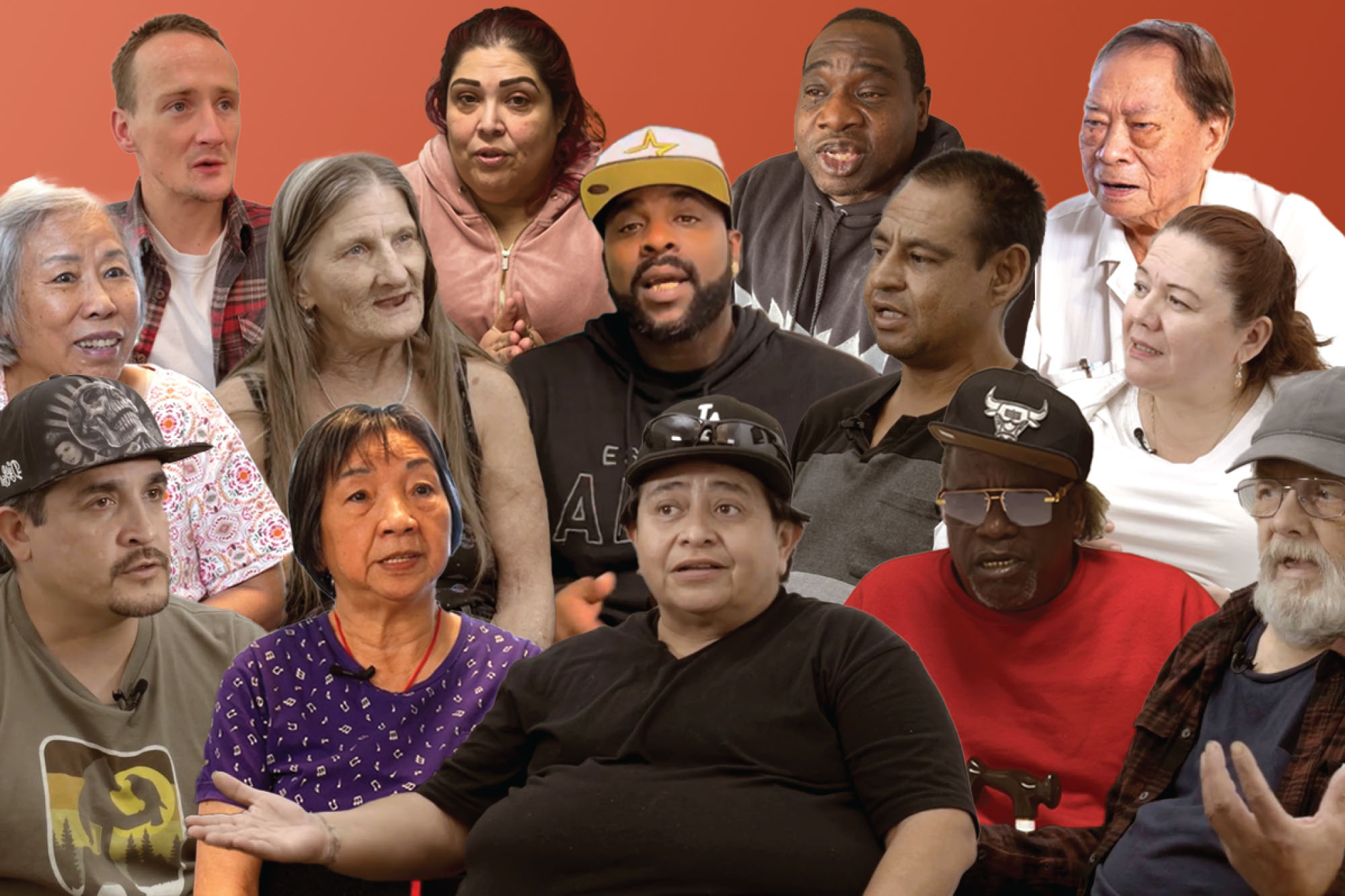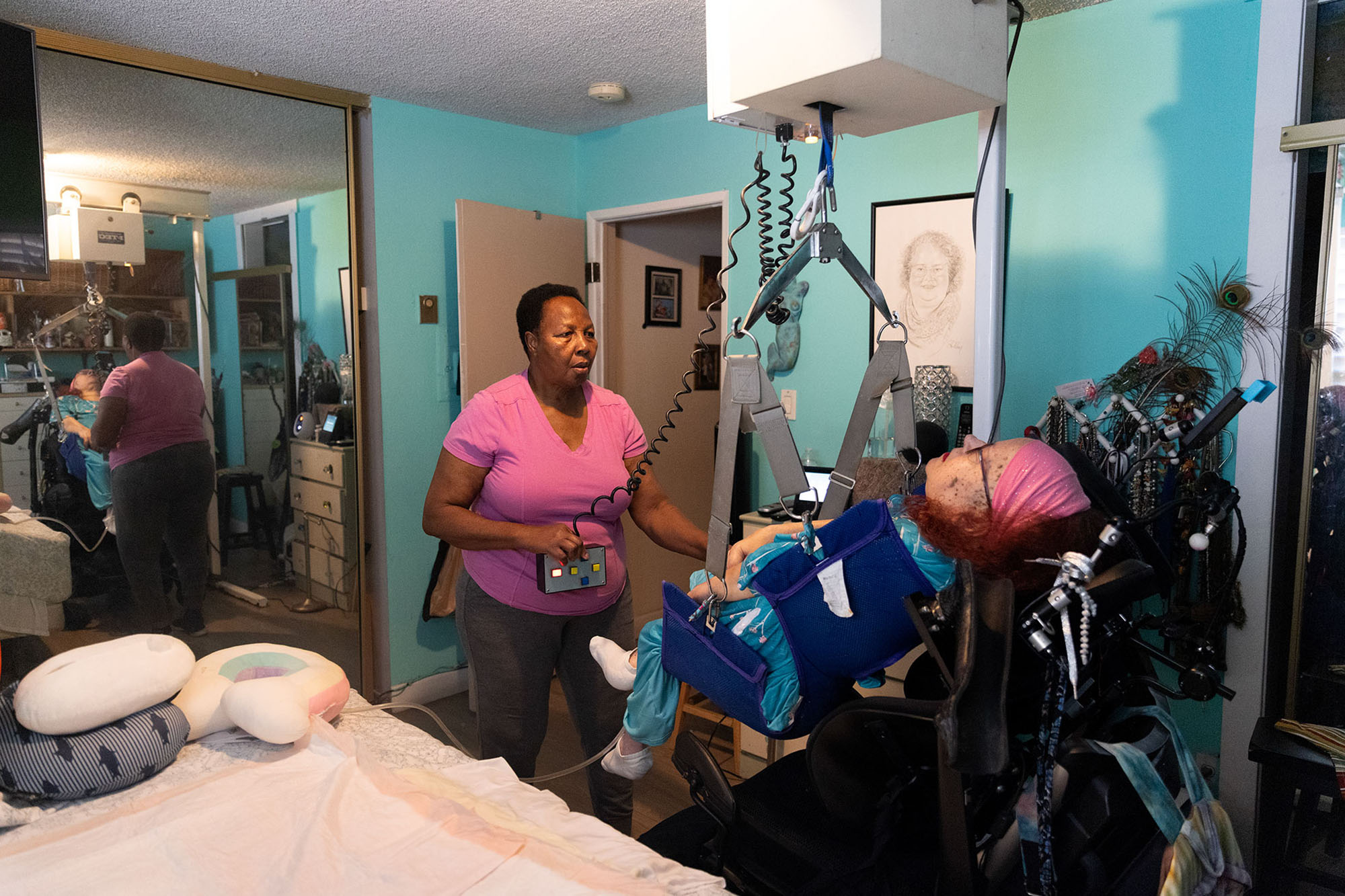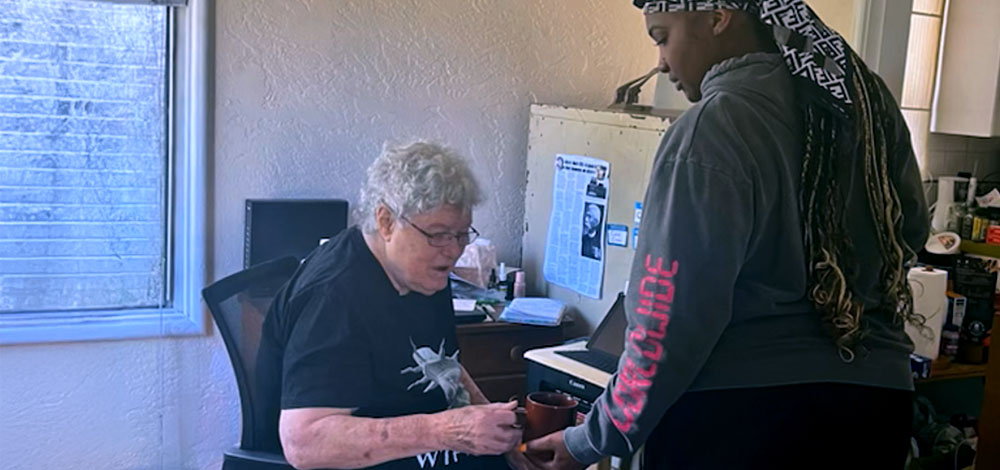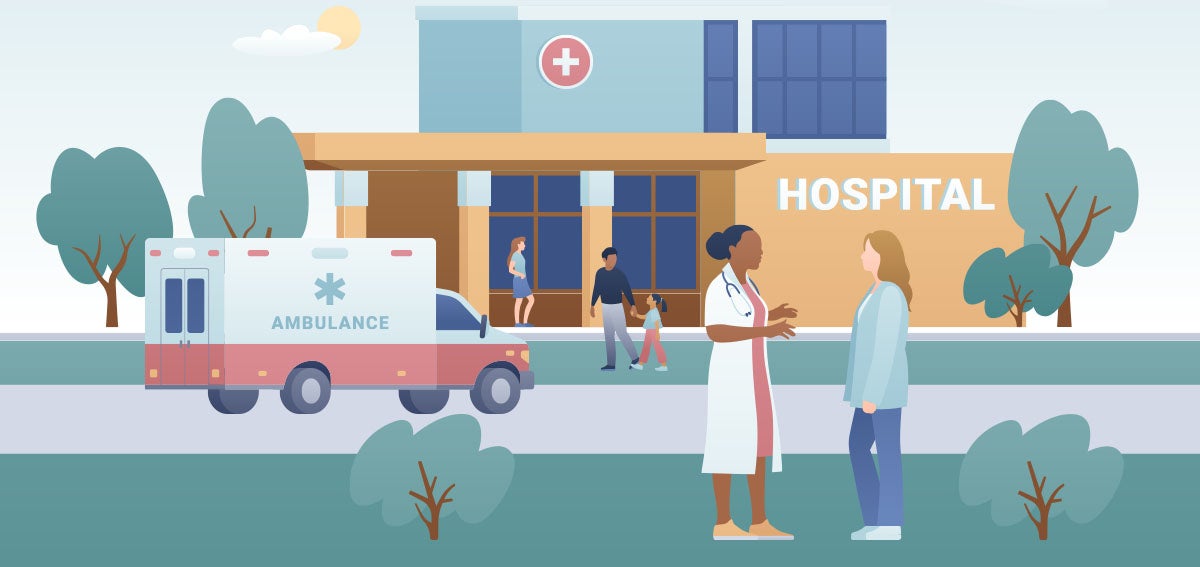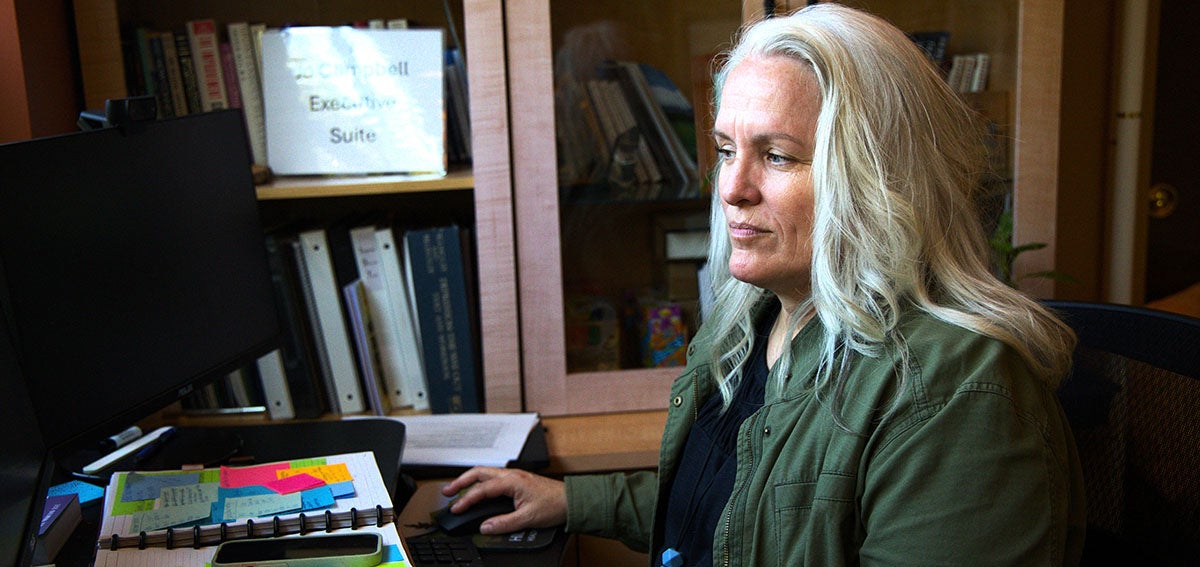|
Getting your Trinity Audio player ready…
|

On a bright and early morning in Pittsburg, California, two women position themselves tactically outside the La Superior Mercados between the extra-large charcoal grill for roasting chicken and the rows of yellow-trimmed grocery carts. The supermarket is frequented by the area’s Latino/x community and anyone trying to get in or out this morning must pass the women first and hear their sales pitch. Their product should be easy to sell: free to low-cost health insurance for people with low incomes. But often, a surprising answer to their question, “Can we sign you up for Medi-Cal?” is “no.”
The list of benefits a patient can receive with full-scope Medi-Cal for free or at low cost includes emergency services, maternity care, mental health and substance use disorder services, pediatric care, and more, the women explain to passersby. Their enrollment services are offered for free through Monument Impact, a nonprofit organization in Contra Costa County that helps connect low-income immigrants to resources, they remind folks. Still, several of the shoppers, mostly Spanish-speaking Latinos/x, look at the women with skepticism as they make their pitch.
Medi-Cal expanded to include all qualifying adults regardless of immigration status in January 2024. This year’s expansion was the final phase of an eight-year effort to extend Medi-Cal to undocumented immigrants, first to children and pregnant women, then to children under 19, to young adults under 26, and to older adults over 50, as part of the state’s initiative to expand health care access to all Californians. The UC Berkeley Labor Center estimates that close to one million undocumented Californians will have gained access to Medi-Cal through this expansion.
Judith Peralta and Mireya Robles said that at the start of the year it was no problem engaging folks and encouraging them to sign up for the program. As promotoras de salud, health promoters, Peralta and Robles serve as trusted messengers to connect their community to limited health insurance options available to low-income immigrants.
Convincing People Is Challenging
The first few months of the year, the women saw a rush to apply for Medi-Cal — hundreds of people in the community were ready to enroll. But in recent months, they’ve found convincing people to sign up more challenging. Many of the people they encounter either already have Medi-Cal, know they don’t meet the income requirements to qualify for the program, or, in many cases, brush them off with a kind but adamant “no.” They’re afraid of Medi-Cal, the women say.
“It’s often men who have more fear, they’ll tell us ‘no, no,’” Peralta said in Spanish. “Like they’ll say it has something to do with immigration or it has to do with the government. Like they don’t want to give their name.”
Distrust of government has long run deep in Latino/x immigrant communities, but reached a high point in 2019. That’s when the Trump administration announced that using certain government benefits could prevent undocumented immigrants from ever qualifying for legal status. The Trump administration leaned on a category known as a “public charge” to institute these changes. A public charge is an unauthorized immigrant who is likely to become dependent on government benefits. A designation of public charge jeopardizes an immigrant’s chances of securing legal status in the US. Before 2019, only using cash assistance for income like Temporary Assistance for Needy Families or needing long-term institutionalized care paid for by the government meant risking a designation of public charge from an immigration official.
The Trump administration expanded public charge to include Medicaid (called Medi-Cal in California), the Supplemental Nutrition Assistance Program, housing assistance, energy assistance, child-care subsidies, and other benefits, according to the Migration Policy Institute, a nonpartisan research organization. Overnight, what was once an obscure set of bureaucratic rules became a household concern.

Before 2019, “I actually had no clue of even the words ‘public charge,’” said Janet Anwar, registration services manager at Tiburcio Vasquez Health Center, a nonprofit East Bay health clinic. “It wasn’t a common word in our community, not until then. It brought a lot of concerns to our patients because there was a lot of miscommunication as to what was public charge, how it impacts immigration cases.”
Though the Trump public charge rules were only in effect for a short period, and were reversed officially at the start of the Biden administration, researchers and immigrant advocates said the changes caused a long-lasting “chilling effect.” Experts say the Trump 2024 campaign has so far not mentioned public charge in its immigration agenda, but undocumented immigrants in California remain afraid, and that fear is preventing people from applying for the newly expanded Medi-Cal benefits.
This better-safe-than-sorry mindset means that undocumented immigrants may go years without seeing a medical professional or end up with high out-of-pocket expenses when they do seek medical care. Without insurance, immigrants will delay care until their health condition is no longer tolerable or go without care entirely.
“We saw it all,” Anwar said, describing the years that followed Trump’s changes to public charge. “We saw patients not wanting to come in, not even for their appointments, thinking that just getting the services for their health care was going to affect them.”
People were also afraid to apply for benefits for their US-born children, she added. “They even thought that that was going to affect them in some sort of way.”
In an election year, with former President Donald Trump again on the ballot, many undocumented immigrants are expressing concern about a return of the expanded public charge rules, and how the government might use their information should they apply for Medi-Cal without legal status.
“They are afraid no matter what,” Azucena Espinoza, a senior promotora with Monument Impact, explained in Spanish. “They say, ‘For what reason do they want all this information about us? So that tomorrow or the day after they can use it [against us]?’ And they are right to feel that way because we know it could be Donald Trump. We don’t know what will happen, right?”
‘Chilling Effect’ on Medi-Cal Enrollment
The concept of public charge has existed in US immigration policy for more than a century. From 1999 to 2019, the share of undocumented immigrants who could be considered a public charge was 3%, according to the UCLA Latino Policy and Politics Institute (LPPI), because the number of social programs an unauthorized immigrant would need to use in order to be deemed a public charge was limited. When the Trump administration expanded that list to include more social programs, the share of undocumented immigrants who could be considered a public charge rose to 47%.
Applications for Medicaid immediately declined following the Trump administration’s changes to public charge, according to the UCLA researchers. They found that 17% of undocumented immigrants avoided any public benefit enrollment in 2019. Mixed-status households also avoided applying for public benefits for fear of jeopardizing their undocumented loved ones, or immigrant parents of US-born children avoided signing their children up for health benefits for fear it would negatively impact the family’s position in the country.
Though the Trump administration’s changes were challenged in court and ultimately were reversed in 2021, UCLA researchers have found evidence that the “chilling effect” lingers years later. When in 2023 the UCLA researchers began studying California’s expansion of Medi-Cal to undocumented immigrants, fear of public charge came up again.
“Immigration status continues to be a barrier for folks to enroll in Medi-Cal,” said Lucía Félix Beltrán, senior research fellow at LPPI. “There is still a fair amount of work to be done around public charge. That’s where partnering with community organizations comes in. But even then it’s like, these decisions are made at the household level. It doesn’t matter how many organizations get involved or how many flyers you give out or how many briefs you publish. These decisions are made within households and that’s where it gets kind of tricky.”
In a statement to El Tímpano, a California Department of Health Care Services spokesperson said the agency is “unable to speculate about the potential impact of future public charge rule changes.” They added, however, that “California law strictly protects personal information, including immigration status, ensuring confidentiality for all applicants. If an individual does not have satisfactory immigration status and applies for Medi-Cal, California does not share their immigration status with the federal government, and the federal government does not have access to state-owned data.”
Changing Minds
Changing minds when the perceived risk is so high is a challenge for the nonprofits tasked with informing community members about Medi-Cal and public charge.
The DHCS website includes information in Spanish (PDF) that reminds interested Medi-Cal applicants that their information will not be shared with federal immigration enforcement agencies. All dollars spent on the expansion of Medi-Cal to undocumented people come from state funding. Regardless, other than long-term institutionalized care paid for by the government—nursing home or mental health institution care are examples, according to US Citizenship and Immigration Services — Medi-Cal is exempt from the public charge rule. (According to DHCS, short-term institutional care like rehabilitation, respite care or treatment for behavioral or substance use disorder issues are not considered subject to public charge review).
But for advice on navigating public charge and Medi-Cal, DHCS said to speak to certified nonprofit organizations—the agency cannot directly answer questions on this topic. Among those certified nonprofits is the Multicultural Institute, which provides immigrant families with health, immigration and labor resources at their three locations across the Bay Area.
The blocks surrounding the Multicultural Institute in Berkeley are lined with day laborers, immigrant men looking for whatever work they can find in construction or other household jobs. Outreach workers from the organization spend mornings canvassing the blocks to talk to the men and see what they might need, whether it’s food from their pantry or Medi-Cal coverage.
“We don’t have any lawyers here, but we do our best” to address public charge questions, said Daniela Gonzalez-Perez, Health and Engagement Manager at the Multicultural Institute, who added that they do still often hear concerns, the aftermath of what life was like during the Trump administration.

There was “a lot of fear of deportation, you know, just a fear of the reality that we were living in under Trump’s America and his hate or disdain for the immigrant community,” she said. “There’s a lot of uncertainty still of what would actually happen if they apply for benefits. . . . If they are super, super concerned then we would refer them out to a partner organization that handles immigration cases.”
What many health and immigrant advocates hear frequently, according to interviews with El Tímpano, is that undocumented immigrants will avoid public benefits and delay seeing a doctor or medical professional for years, until their needs are dire and have to go to an emergency room.
“There are people out there who said . . . that immigrants use way too much public benefits and it’s just not true based on the numbers,” said Valerie Lacarte, a senior policy analyst with the Migration Policy Institute who studied immigrant participation in government programs like Medicaid. When comparing low-income U.S. citizens with low-income non-citizens, usage of public benefits dips. In the vast majority of the U.S., most undocumented immigrants do not qualify for Medicaid—California is an exception. But when comparing the U.S.-born low-income population and immigrants who are federally eligible for Medicaid, participation in the program was at 76% for citizens, and 66% for non-citizens, according to MPI (PDF). Fears of participating in government programs may depress participation, the researchers found.
Helping undocumented immigrants in California overcome that fear can be an uphill battle for the promotoras tasked with connecting their community with Medi-Cal.
“There was a man who we were trying to get to sign up for Medi-Cal and he said no because Trump will just take it away,” said Robles in Spanish, laughing about it with Peralta in front of the La Superior grocery store in Pittsburgh.
“Little by little, people start trusting us since they’ll see us so often,” she added. “At first it was like no one wanted to [enroll], like they didn’t trust us much. But now since we’re out here so often . . . people will recognize us and they’ll say ‘oh, you are the women from Medi-Cal’ — they’ll recognize us and start sharing their problems.”

Robles, herself undocumented, recently obtained Medi-Cal this year through the latest expansion of the program. She’ll often share her own experience with people who express fear over public charge.
“We’re here to convince them,” she said. “Look, this is very important for you, for your health. . . . This doesn’t hurt, on the contrary, it helps.”
In many cases, their efforts are successful. A few miles away at the Monument Impact office in Antioch, Espinoza, the senior promotora for the organization, helps to organize the day’s appointments for immigrants to sit with a member of the team and work on their Medi-Cal application together. Some of the people in the waiting room are walk-ins.
“There are some people who cannot be convinced,” Espinoza said, “but others can be.”
By the end of the day, 13 new people were enrolled in Medi-Cal.
This article was first published on September 25, 2024, by El Tímpano, and is reprinted with permission.
Authors & Contributors
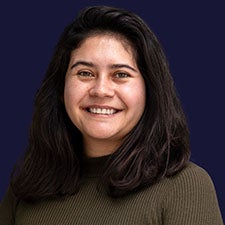
Jasmine Aguilera
Jasmine Aguilera is the senior health equity reporter/editor at El Tímpano. Previously she covered Congress and immigration for Time magazine, working from New York City, Los Angeles, and Washington, DC. Her work has appeared in The New York Times, The Dallas Morning News, Yes! magazine, Latino Rebels, and others.

Hiram Alejandro Durán
Hiram Alejandro Durán is El Tímpano’s photojournalist. His work has been featured in The New York Times, the Marshall Project, the Pulitzer Center, the Imprint News, Bklyner, and The Mail & Guardian in Johannesburg, South Africa. He comes to El Tímpano as CatchLight Local Fellow and a Report for America Corps member.

